Election of President-Elect, Regional Directors-at-Large and Members-at-Large

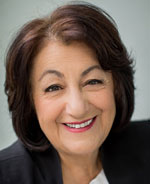
Rabab K. Ward
SPS Past President and Chair, Nominations and Appointments Committee
It is my pleasure to announce that the IEEE Signal Processing Society (SPS) annual election will commence on 15 August, and your vote is more important than ever! Beginning this year, all eligible SPS Members will now vote for the next President-Elect (term 1 January 2020 through 31 December 2021), in addition to the Regional Directors-at-Large for Regions 7 & 9 and 10 (term 1 January 2020 through 31 December 2021), and Members-at-Large (term 1 January 2020 through 31 December 2022) of the IEEE Signal Processing Society Board of Governors (BoG).
Ballots will be mailed to SPS members. The ballot includes a diverse slate of candidates for all elections, which were vetted by the SPS Nominations and Appointments Committee, as well as a space for write-in candidates. This year’s election offers SPS members the opportunity to cast their votes via the web at https://eballot4.votenet.com/IEEE for up to one President-Elect, one Regional Director-at-Large for your corresponding Region: Regions 7 & 9 (Canada and Latin America) and Region 10 (Asia and Pacific), and three Member-at-Large candidates. Ballots must be received at the IEEE no later than 1 October 2019 to be counted. Members must meet the eligibility requirements at the time the ballot data is generated to be eligible to vote. To be eligible to vote in this year’s Society election, you had to have been an active SPS Member, Affiliate, or Graduate Student Member as of 30 June 2019. This is the date when the list of eligible Society voting members was compiled.
The 2019 candidates for President-Elect (presented in alphabetical order), and their candidate statements, appear below:
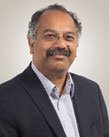
V John Mathews
I am honored to be nominated for the position of President-Elect. Through 38 years of membership and a number of leadership positions in the IEEE Signal Processing Society (SPS), I have developed great appreciation for the substantial knowledge base and technical expertise of our membership, the vision and dedication of our staff and volunteers, and the impact our broad network of chapters and committees can have. I have also gained an understanding of what makes the Society function well, and a passion for helping the Society grow and spread its influence worldwide. If elected, my priorities will be to:
- Enhance the quality of our products and services, and their accessibility to our diverse global membership,
- Grow the Society through outreach to IEEE regions worldwide,
- Broaden our reach through enhanced partnerships with sister societies and industry, and
- Increase our relevance by becoming more influential in public policy and decision-making.
I will strive to accomplish these goals while ensuring that the operations of the Society are member-centric, forward-looking, collaborative, and prudent in its use of resources.
As President-Elect and President, I will promote greater and more diverse member involvement globally. I will help our conferences evolve with technology and make them more accessible to members in all regions of the IEEE, ensuring that they are the preferred venues for presenting new research results and networking. I will help our publications adapt to new publishing paradigms and changing revenue models, so that they attract the best research articles and remain definitive sources of Signal Processing (SP) content. I will support initiatives to enhance and broaden the reach of SP education at all levels.
Only a small fraction of SP professionals and students are members of SPS. I will engage a multi-pronged strategy to change this. Growing SPS will involve becoming truly global, and increasing our presence in developing countries. I will support increasing conference events and developing new educational activities in major growth areas, and providing the resources and help to implement such initiatives.
Recognizing the importance of cross-disciplinary research, I will work to broaden our footprint and increase our impact by building partnerships with sister societies, including in computing, neuroscience, medicine, biology, energy, transportation and finance. I will focus on bettering our partnerships with industry to assist them with technology needs and expand career development opportunities for employees. Because SP is pervasive with significant societal impact, SPS must become the source that is consulted on technology and policy in our field. Unfortunately, this is not the case now. To change this, I will champion SP to thought leaders and policy makers, promote activities to help SP professionals articulate and advance research and technology directions, and support programs to broaden participation in SP by engaging non-ECE and pre-college students.
If elected, I will work collaboratively with our Boards and Committees, staff and other volunteers to achieve the above goals and make a positive impact on the well-being, growth and stature of SPS.
For more information about V John Mathews, please visit https://www.mathewsvj.com/.
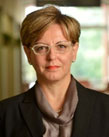
Athina P. Petropulu
It is an honor for me to be nominated for the position of SPS President-Elect. In addition to meeting the expectations of the position, I will put forward initiatives to support the following vision. Signal processing (SP) is the brain of most technologies that have changed the course of history, e.g., the wireless phone, radars, virtual reality, robotics, video streaming, just to name a few. Signal processing is in the core of tools that have revolutionized our understanding of the world, such as data analytics, data modeling, machine learning. While all of us already in signal processing are well aware of the role SP has played and continues to play, the general public cannot easily relate to SP; they either ignore it completely, or perceive it as something esoteric, something more like a magic wand that can be applied to solve all problems. A typical school teacher, for example, has a very vague idea what SP is, thus they are not in a position to get the students thinking about pursuing SP related studies. This in turn means that SP does not tap in all available talent. And while SP has led to significant advances by engaging only a small segment of the talent pool, one can imagine how much more it could do if it could draw from a larger and more diverse talent pool.
I like to the think of IEEE-SPS as the organization that raises the visibility of the field of SP, acts as a spokesperson of the IEEE-SPS community around the world, and sets the vision for the developments in that field. In my role as SPS President-Elect, I would work towards mobilizing SPS officers and membership in support of the above vision. I would work towards building a mindshare of Signal Processing as a core theme of Electrical Engineering and promoting its potential for groundbreaking technological advances. Such activities can include (i) social media /articles /talks /workshops /competitions /summer camps, organized by regional chapters and targeting pre-college student audiences and the non-technical public, (ii) create SigPort material in the right language for pre-college students, which is freely accessible and which can be used by high school educators, (iii) create a structure within the SPS TCs for coming up with white papers on ideas that will be the next hottest trend in the field, and (iv) introduce officers who will advocate the SPS interests to government and organizations that fund research.
I will also work towards formalizing events that encourage the participation of women in SPS as part of conferences, regional lectures/banquets. Some countries have been particularly successful in engaging women and traditionally underrepresented minorities to the field. SPS can be the platform where best practices can be expanded at global scale. In all efforts I will engage industry. Knowledge of signal processing is the most desirable feature of people the industry wants to hire. Therefore, industry has a vested interest in expanding the pool of people who are exposed to signal processing.
For more information about Athina P. Petropulu, please visit http://www.ece.rutgers.edu/athinap/.
The 2019 candidates for Regional Director-at-Large (presented in alphabetical order) appear below. Candidate biographies will be included in the ballot.
Region 7 & 9:
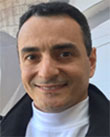
Charles Casimiro Cavalcante |
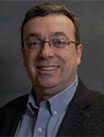
Timothy Norman Davidson |
Region 10:
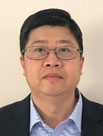
Kin-Man (Kenneth) Lam |

Wing-Kin (Ken) Ma |
The 2019 candidates for Member-at-Large (presented in alphabetical order) appear below. Candidate biographies will be included in the ballot.
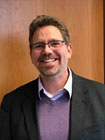
Eric Fosler-Lussier |
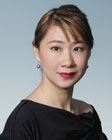
Pascale Fung |
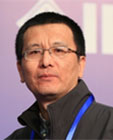
Fa-Long Luo |
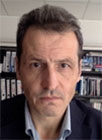
Marc Moonen |
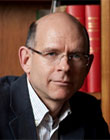
Patrick A. Naylor |
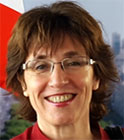
Roxana Saint-Nom |

Bjoern W. Schuller |

Gaurav Sharma |
The BoG is the governing body that oversees the activities of the SPS. The SPS BoG has the responsibility of establishing and implementing policy and receiving reports from its standing boards and committees and comprises 22 Society members: the President and President-Elect who are elected by the voting members of the Society, five Vice President officers of the Society who are elected by the BoG, nine Members-at-Large elected by the voting members of the Society, four Regional Directors-at-Large elected locally by Society voting members of the corresponding region, as well as the Awards Board Chair. The seven officers are the President, President-Elect, the Vice President-Conferences, Vice President-Education, Vice President-Membership, Vice President-Publications, and Vice President-Technical Directions. The Executive Director of the Society shall serve ex-officio, without vote.
The President-Elect is an IEEE Signal Processing Society member elected by the Society’s membership via the annual election, to serve as an officer and as a voting member on the Society’s Board of Governors, Executive Committee, Conferences Board, Education Board, Membership Board, and Publications Board. The President-Elect position automatically succeeds to President.
Regional Directors-at-Large are SPS members who are elected locally by Society voting members of the corresponding Region via the annual election to serve on the Society’s BoG as nonvoting members and voting members of the Society’s Membership Board.
Members-at-Large represent the member viewpoint in the Board decision making. They typically review, discuss, and act upon a wide range of items affecting the actions, activities, and health of the Society.
More information on the IEEE SPS can be found on Signal Processing Society website.

